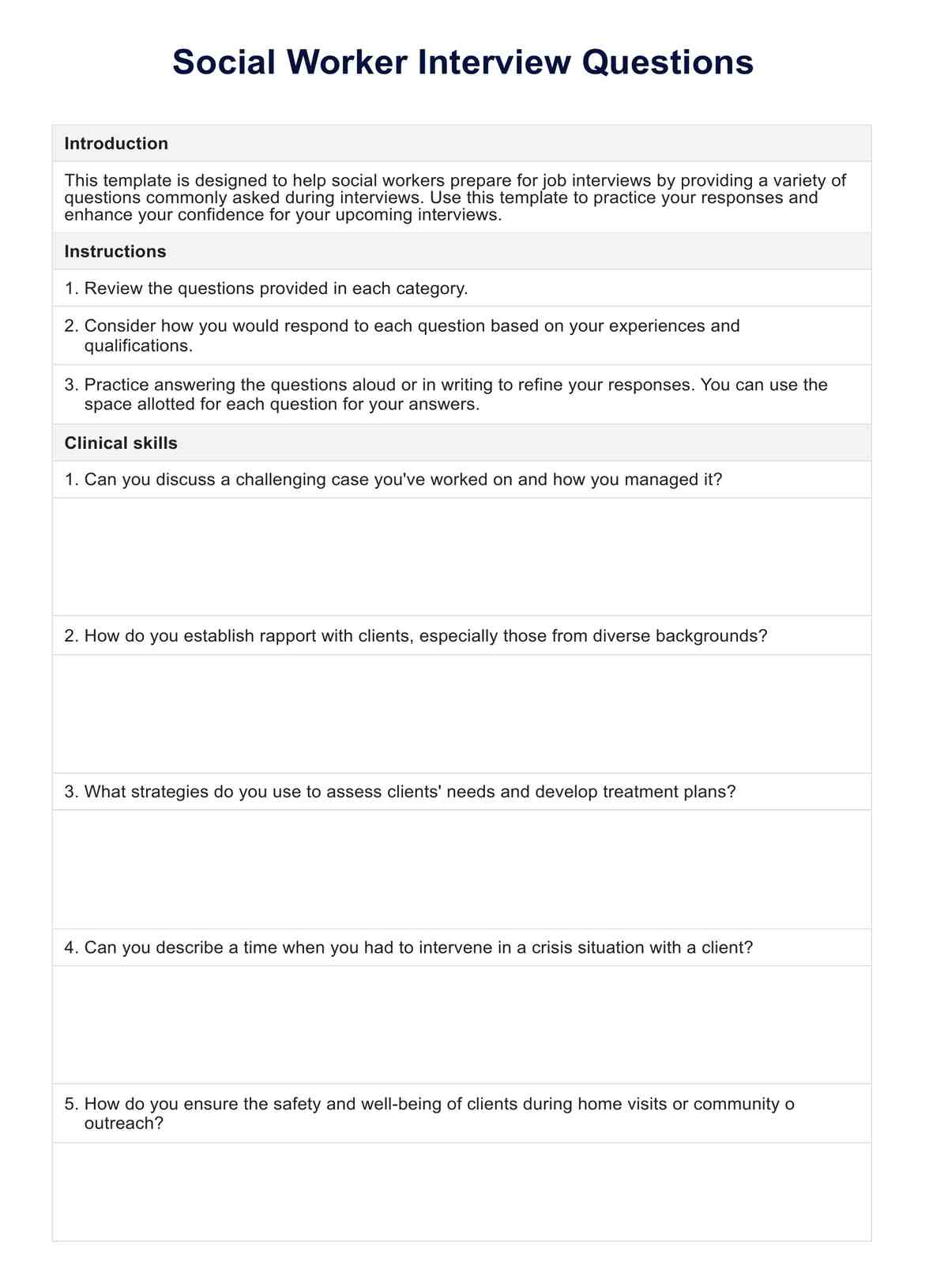To interview a social worker, establish rapport, ask about their experience and qualifications, pose scenario-based questions, and evaluate their fit for the role.

Social Worker Interview Questions
Preparing for a social worker interview? Access Carepatron's free PDF download with sample interview questions and get ready to ace your next interview.
Use Template
Social Worker Interview Questions Template
Commonly asked questions
Examples of open-ended questions to ask a social worker include "Can you tell me about a challenging case you've worked on?" and "How do you approach building rapport with clients from diverse backgrounds?
Social workers may ask about your reasons for seeking assistance, your current situation, any challenges you're facing, your support network, and your goals for treatment or support.
EHR and practice management software
Get started for free
*No credit card required
Free
$0/usd
Unlimited clients
Telehealth
1GB of storage
Client portal text
Automated billing and online payments











